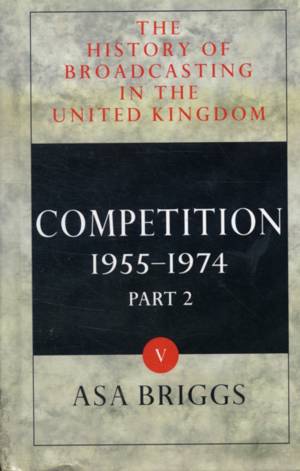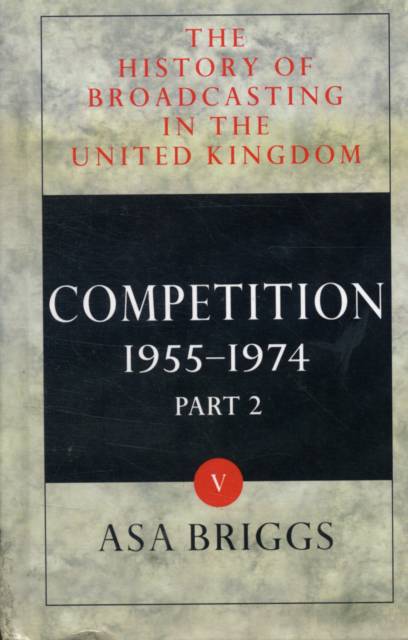
- Afhalen na 1 uur in een winkel met voorraad
- Gratis thuislevering in België vanaf € 30
- Ruim aanbod met 7 miljoen producten
- Afhalen na 1 uur in een winkel met voorraad
- Gratis thuislevering in België vanaf € 30
- Ruim aanbod met 7 miljoen producten
Zoeken
The History of Broadcasting in the United Kingdom: Volume V: Competition
Asa (Vice-President, Historical Association; Chancellor, Vice-Pr
€ 373,45
+ 746 punten
Omschrijving
Volume 5 of a study of the history of broadcasting in the United Kingdom, examining the impact of competition. It should be of interest to: institutions where media history is taught; students of British media history at postgraduate level; and general readers who are drawn to the current debates about the BBC.
Specificaties
Betrokkenen
- Auteur(s):
- Uitgeverij:
Inhoud
- Aantal bladzijden:
- 1206
- Reeks:
Eigenschappen
- Productcode (EAN):
- 9780192159649
- Verschijningsdatum:
- 23/03/1995
- Uitvoering:
- Hardcover
- Afmetingen:
- 148 mm x 229 mm
- Gewicht:
- 1760 g

Alleen bij Standaard Boekhandel
+ 746 punten op je klantenkaart van Standaard Boekhandel
Beoordelingen
We publiceren alleen reviews die voldoen aan de voorwaarden voor reviews. Bekijk onze voorwaarden voor reviews.







